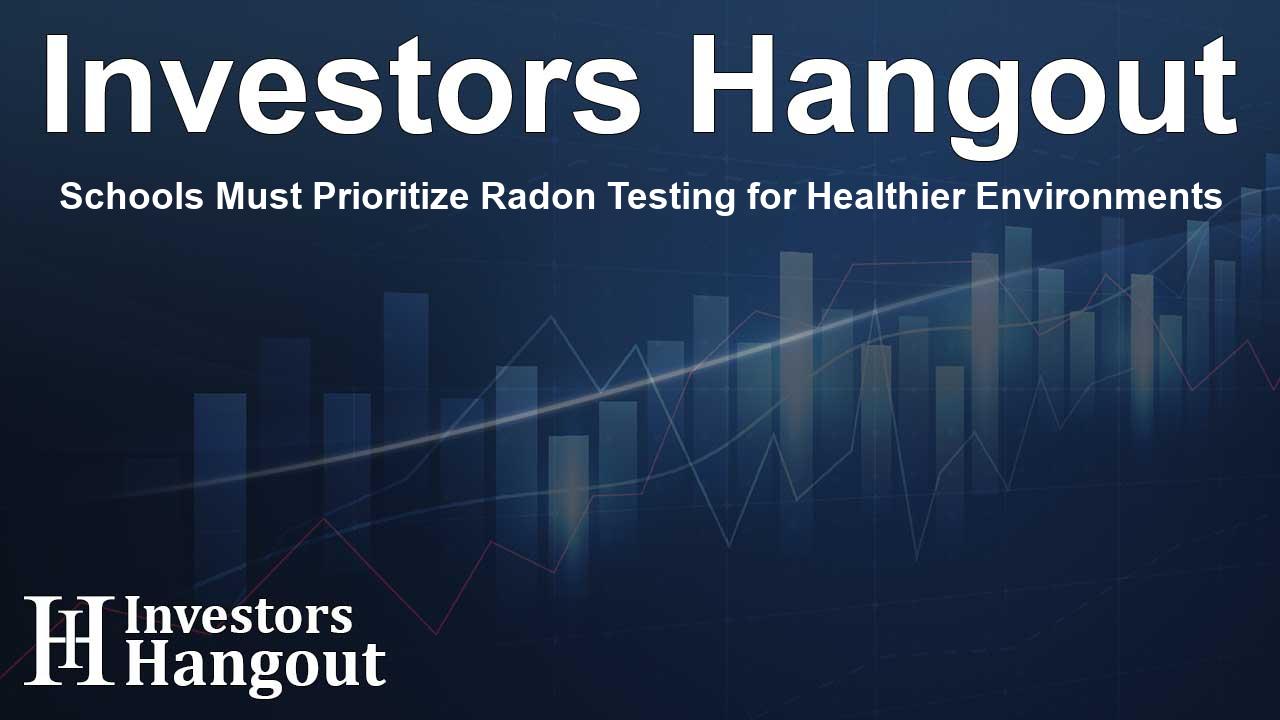Schools Must Prioritize Radon Testing for Healthier Environments

Ensuring Healthy Learning Environments through Radon Testing
The American Lung Association is making a pressing appeal for schools across the country to prioritize indoor air quality by testing for radon. With millions of students and educators spending significant time in K-12 facilities, understanding the threats posed by indoor air pollution is crucial for their health and safety.
The Hidden Danger of Radon
Radon is a naturally occurring radioactive gas that, despite being odorless and tasteless, poses severe health risks. It is recognized as the second leading cause of lung cancer in the nation, contributing to around 21,000 fatalities annually. Given that the only way to assess if radon levels are elevated in schools is through testing, it becomes imperative for school administrators to take action.
Health Implications of Poor Indoor Air Quality
With people spending an estimated 90% of their time indoors, the air quality within school buildings can significantly impact learning and overall health. Research indicates that inadequate air quality is linked to decreased academic performance, increased student absenteeism, and a heightened risk of respiratory illnesses. Therefore, ensuring that schools are safe environments is essential for the well-being of both students and faculty members.
Testing and Mitigation Measures
Radon easily infiltrates buildings through cracks in walls, floors, and foundations, emphasizing the need for thorough testing. The Environmental Protection Agency (EPA) recommends initiating mitigation strategies if radon levels reach or exceed 4.0 picocuries per liter (pCi/L) and considering intervention for levels between 2.0 and 4.0 pCi/L. To facilitate testing, many states provide training for school officials, allowing them to conduct tests or recommending licensed professionals for accurate evaluations.
Importance of Swift Action
Every child has the right to a healthy learning environment, and immediate action can ensure that schools do not fall prey to the dangers of unchecked radon levels. Testing for radon is not only straightforward but also affordable, making it accessible for schools to implement necessary precautionary measures.
Community Awareness and Involvement
Community involvement is vital for the success of radon testing initiatives. Schools are encouraged to engage with local organizations and health advocates to raise awareness about radon exposure and to promote educational sessions regarding air quality. Heightened community awareness can foster an environment where everyone is invested in ensuring a safe educational space for children.
Conclusion: A Call to Action
The American Lung Association is urging all school districts to undertake radon testing and enact mitigation measures as required. By prioritizing indoor air quality, schools can significantly enhance the health and well-being of their students, teachers, and staff. For additional information on resources for radon testing in schools, the American Lung Association provides various materials to assist school districts in making informed decisions.
Frequently Asked Questions
What is radon and why is it a concern in schools?
Radon is a naturally occurring radioactive gas that poses serious health risks, including lung cancer. It can accumulate indoors, making it crucial for schools to test and mitigate radon levels.
How does poor indoor air quality affect students?
Poor indoor air quality can lead to reduced academic performance, increased absenteeism, and a higher likelihood of respiratory issues among students.
What are the recommended radon levels by the EPA?
The EPA advises taking action to reduce radon levels at or above 4.0 pCi/L and suggests considering mitigation for levels between 2.0 and 4.0 pCi/L.
Are school officials trained to conduct radon testing?
Yes, many states offer training for school officials to perform radon testing, or they can hire licensed professionals for this purpose.
How can communities help in raising awareness about radon?
Communities can support schools by promoting awareness about radon dangers, organizing educational events, and advocating for testing and mitigation in school environments.
About The Author
Contact Evelyn Baker privately here. Or send an email with ATTN: Evelyn Baker as the subject to contact@investorshangout.com.
About Investors Hangout
Investors Hangout is a leading online stock forum for financial discussion and learning, offering a wide range of free tools and resources. It draws in traders of all levels, who exchange market knowledge, investigate trading tactics, and keep an eye on industry developments in real time. Featuring financial articles, stock message boards, quotes, charts, company profiles, and live news updates. Through cooperative learning and a wealth of informational resources, it helps users from novices creating their first portfolios to experts honing their techniques. Join Investors Hangout today: https://investorshangout.com/
The content of this article is based on factual, publicly available information and does not represent legal, financial, or investment advice. Investors Hangout does not offer financial advice, and the author is not a licensed financial advisor. Consult a qualified advisor before making any financial or investment decisions based on this article. This article should not be considered advice to purchase, sell, or hold any securities or other investments. If any of the material provided here is inaccurate, please contact us for corrections.
